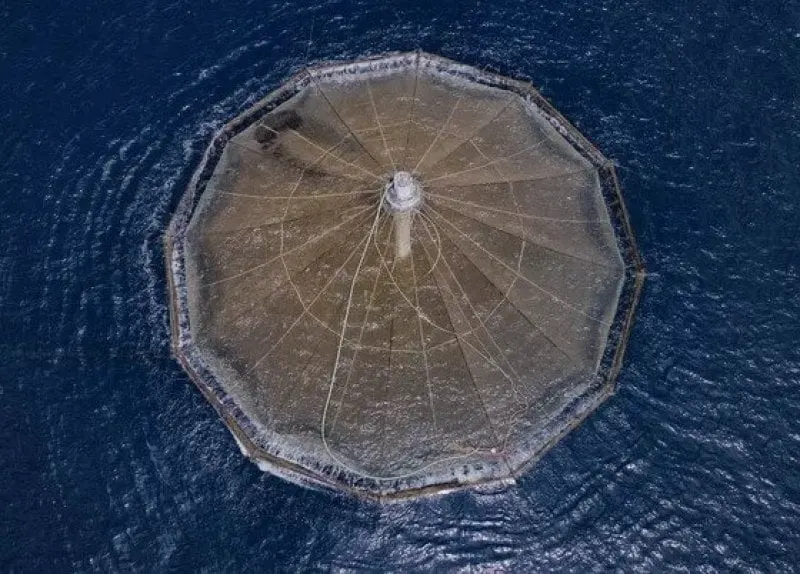Viewpoint on sustainable fishing: Oft-maligned aquaculture offers range of environmental and production benefits
Viewpoint on sustainable fishing: Oft-maligned aquaculture offers range of environmental and production benefits


With the U.S. importing 90 percent of the seafood we eat, it’s clear that wild capture fisheries alone can’t meet our increasing demand for seafood. It’s time for the United States to take action to diversify our food supply by encouraging development of the nascent aquaculture industry, while also supporting growth of other related industries, such as agriculture.
Aquaculture in the U.S. has been hampered by an erratic and intimidating regulatory landscape, which currently involves an alphabet soup of state and federal agencies. It’s confusing, time-consuming and expensive, with up-front administrative costs for a new fish farming project capable of creeping into the seven figure range.
…
Unfortunately, there are many outdated and misguided myths surrounding aquaculture. The truth is that fish farming is a proven, sustainable form of food production. Scientific research shows that offshore aquaculture, when done carefully and managed responsibly, has little environmental impact. And, when it comes to shellfish, species like mussels are inherently sustainable because they help clean the ocean floor.
Fish farming is the fastest growing food sector in the world, and the U.S. needs to embrace this burgeoning industry. We have the resources and technological know-how to be a world leader in responsible aquaculture.
This is an excerpt. Read the original post here.

 | Videos | More... |

Video: Nuclear energy will destroy us? Global warming is an existential threat? Chemicals are massacring bees? Donate to the Green Industrial Complex!
 | Bees & Pollinators | More... |

GLP podcast: Science journalism is a mess. Here’s how to fix it

Mosquito massacre: Can we safely tackle malaria with a CRISPR gene drive?

Are we facing an ‘Insect Apocalypse’ caused by ‘intensive, industrial’ farming and agricultural chemicals? The media say yes; Science says ‘no’
 | Infographics | More... |

Infographic: Global regulatory and health research agencies on whether glyphosate causes cancer
 | GMO FAQs | More... |

Why is there controversy over GMO foods but not GMO drugs?

How are GMOs labeled around the world?

How does genetic engineering differ from conventional breeding?
 | GLP Profiles | More... |

Alex Jones: Right-wing conspiracy theorist stokes fear of GMOs, pesticides to sell ‘health supplements’




 Viewpoint — Fact checking MAHA mythmakers: How wellness influencers and RFK, Jr. undermine American science and health
Viewpoint — Fact checking MAHA mythmakers: How wellness influencers and RFK, Jr. undermine American science and health Viewpoint: Video — Big Solar is gobbling up productive agricultural land and hurting farmers yet providing little energy or sustainabilty gains
Viewpoint: Video — Big Solar is gobbling up productive agricultural land and hurting farmers yet providing little energy or sustainabilty gains Trust issues: What happens when therapists use ChatGPT?
Trust issues: What happens when therapists use ChatGPT? Fighting deforestation with CO2: Biotechnology breakthrough creates sustainable palm oil alternative for cosmetics
Fighting deforestation with CO2: Biotechnology breakthrough creates sustainable palm oil alternative for cosmetics California, Washington, Oregon forge immunization alliance to safeguard vaccine access against federal undermining
California, Washington, Oregon forge immunization alliance to safeguard vaccine access against federal undermining 30-year-old tomato line shows genetic resistance to devastating virus
30-year-old tomato line shows genetic resistance to devastating virus The free-range chicken dilemma: Better for birds, but with substantial costs
The free-range chicken dilemma: Better for birds, but with substantial costs ‘You have to treat the brain first’: Rethinking chronic pain with Sanjay Gupta
‘You have to treat the brain first’: Rethinking chronic pain with Sanjay Gupta
